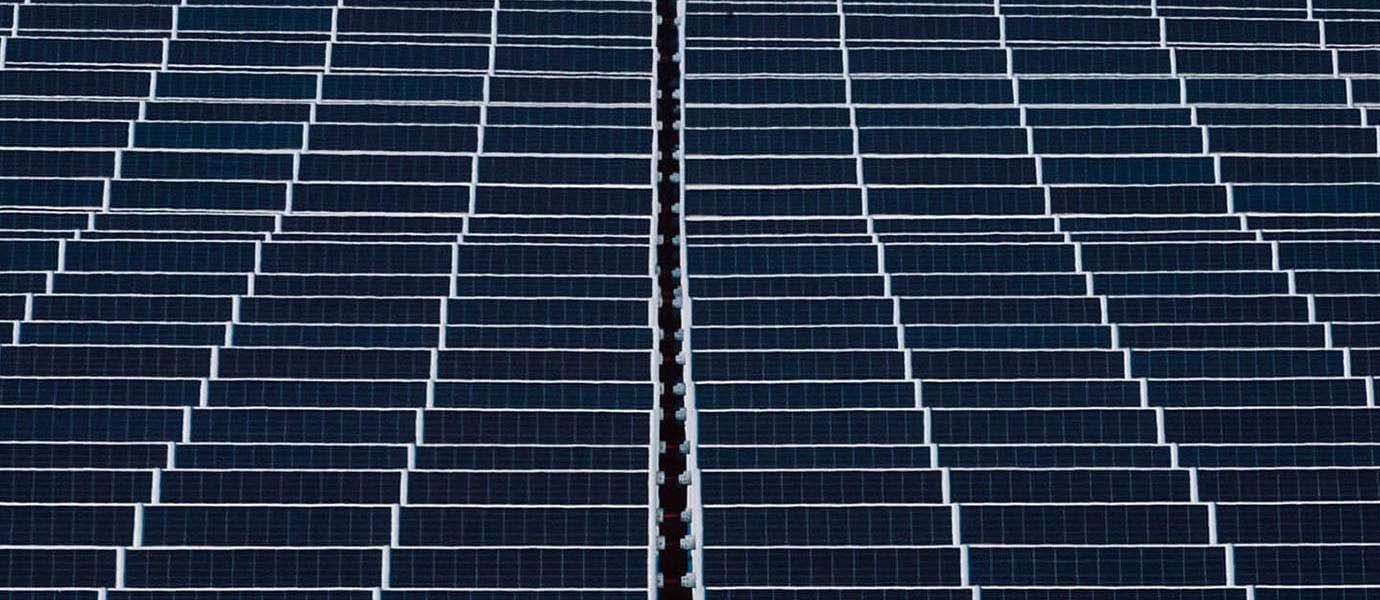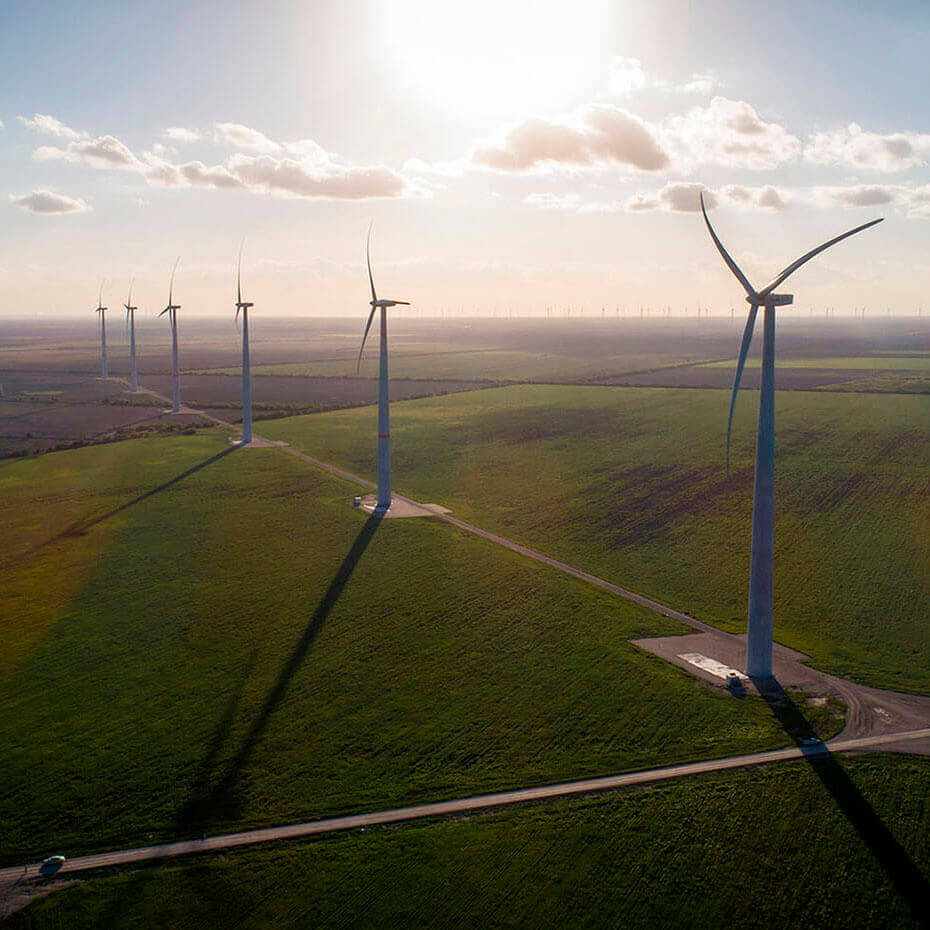THE IMPORTANCE OF RENEWABLE ENERGY
Renewable energies are sources of clean, inexhaustible and increasingly competitive energy. They differ from fossil fuels principally in their diversity, abundance and potential for use anywhere on the planet, but above all in that they produce neither greenhouse gases – which cause climate change – nor polluting emissions. Their costs are also falling and at a sustainable rate, whereas the general cost trend for fossil fuels is in the opposite direction in spite of their present volatility.
Growth in clean energies is unstoppable, as reflected in statistics produced annually by the International Energy Agency (IEA): according to IEA forecasts, the share of renewables in global electricity supply will increase from 28.7% in 2021 to 43% in 2030, and they will provide 2/3 of the increase in electricity demand recorded in that period, mainly through wind and photovoltaic technologies.
According to the IEA, world electricity demand will have increased by 70% by 2040 - its share of final energy use rising from 18 to 24% during the same period – driven mainly by the emerging economies of India, China, Africa, the Middle East and South-East Asia.
DISCOVER WHAT RENEWABLE ENERGIES ARE IN 2 MINUTES
CLEAN ENERGY TO FIGHT CLIMATE CHANGE
Clean energy development is vital for combating climate change and limiting its most devastating effects.2022 was the fifth warmest year since records have been kept and the eighth consecutive year in which global temperatures have increased by at least 1 degree Celsius compared to pre-industrial levels.
Meanwhile, some 1.1 billion inhabitants (17% of the world population) do not have access to electricity. Equally, 2.7 billion people (38% of the population) use conventional biomass for cooking, heating and lighting in their homes - at serious risk to their health.

Renewable energies received important backing from the international community through the Paris Accord signed at the World Climate Summit held in the French capital in December 2015.
The agreement, which entered into force in 2016, establishes, for the first time in history, a binding global objective. Nearly 200 signatory countries pledged to reduce their emissions so that the average temperature of the planet at the end of the current century remains “well below” 2 °C, the limit above which climate change will have more catastrophic effects. The aim is to try to keep it to 1.5 °C.
The transition to an energy system based on renewable technologies will have very positive economic consequences on the global economy and on development. According to the International Renewable Energy Agency (IRENA) and the IEA (International Energy Agency), tripling the renewable energy share in electricity generation of 2022 until it reaches 90 % worldwide by 2030 will be necessary for meeting the Paris Agreement targets. This requires raising annual investments in renewable energy from the current USD 1.3 trillion to USD 5 trillion, thereby boosting job creation and growth linked to the green economy.
Sources: IEA (2022), World Energy Outlook 2022; IRENA (2023), World Energy Transitions Outlook 2023: 1.5°C Pathway; Ten reasons to support renewable energy - Sustainability for all

TYPES OF RENEWABLE ENERGY
Renewable energies include:
- Wind energy: the energy obtained from the wind
- Solar energy: the energy obtained from the sun. The main technologies here are solar photovoltaic (using the light from the sun) and solar thermal (using the sun’s heat)
- Hydraulic or hydroelectric energy: energy obtained from rivers and other freshwater currents
- Biomass and biogas: energy extracted from organic material
- Geothermal energy: heat energy from inside the Earth
- Tidal energy: energy obtained from the tides
- Wave energy: energy obtained from ocean waves
- Bioethanol: organic fuel suitable for vehicles and obtained from fermentation of vegetation
- Biodiesel: organic fuel for vehicles, among other applications, obtained from vegetable oils
Biomass plant Sangüesa
MAIN ADVANTAGES OF CLEAN ENERGIES
Against climate change
Renewables do not emit greenhouse gases in energy generation processes, making them the cleanest, most viable solution to prevent environmental degradation.
Inexhaustible
Compared to conventional energy sources such as coal, gas, oil and nuclear - reserves of which are finite - clean energies are just as available as the sun from which they originate and adapt to natural cycles, hence their name “renewables”. This makes them an essential element in a sustainable energy system that allows development today without risking that of future generations
Reducing energy dependence
The indigenous nature of clean sources gives local economies an advantage and brings meaning to the term “energy independence”. Dependence on fossil fuel imports results in subordination to the economic and political short-term goals of the supplier country, which can compromise the security of energy supply. Everywhere in the world there is a renewable resource – whether that be the wind, sun, water or organic material – available for producing energy sustainably.
Increasingly competitive
Nowadays renewables, specifically wind and photovoltaic, are cheaper than conventional energies in much of the world.
The main renewable technologies – such as wind and solar photovoltaic – are drastically reducing their costs, such that they are the most economically efficient way to generate electricity in a growing number of markets. Economies of scale and innovation are already resulting in renewable energies becoming at lightning speed the most sustainable solution, not only environmentally but also economically, for powering the world.
A favorable political horizon
Decisions adopted at COP21 and forwards - like the COP25 Chile-Madrid - have shone the spotlight firmly on renewable energies. The international community has understood its obligation to firm up the transition towards a low-carbon economy in order to guarantee a sustainable future for the planet. International consensus in favor of the “de-carbonization” of the economy constitutes a very favorable framework for the promotion of clean energy technologies.
ACCIONA, THE LARGEST COMPANY DEDICATED 100% TO RENEWABLE ENERGY
We guarantee access to clean energy
ACCIONA is leading the corporate fight to mitigate the effects of the climate emergency and accelerate change towards a decarbonised energy model. For the fifth consecutive year, it heads the Top 100 Green Utilities de Energy Intelligence as the world's largest 100% renewable energy corporation.
I'MNOVATION #hub
OTEC's Resurgence: Renewable Energy from the Deep
A 1.5 MW power plant showcases the promising potential of thermal gradient energy in the realm of renewables.